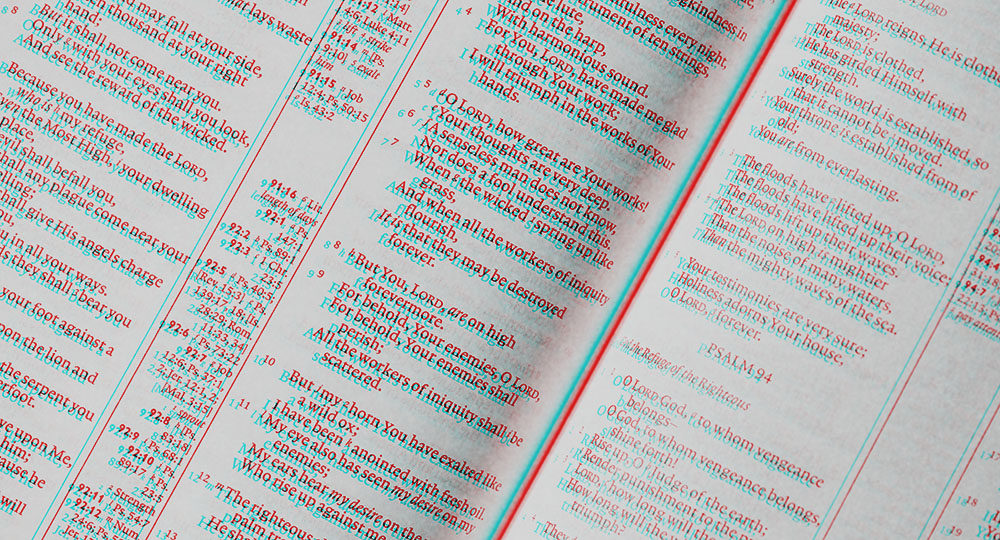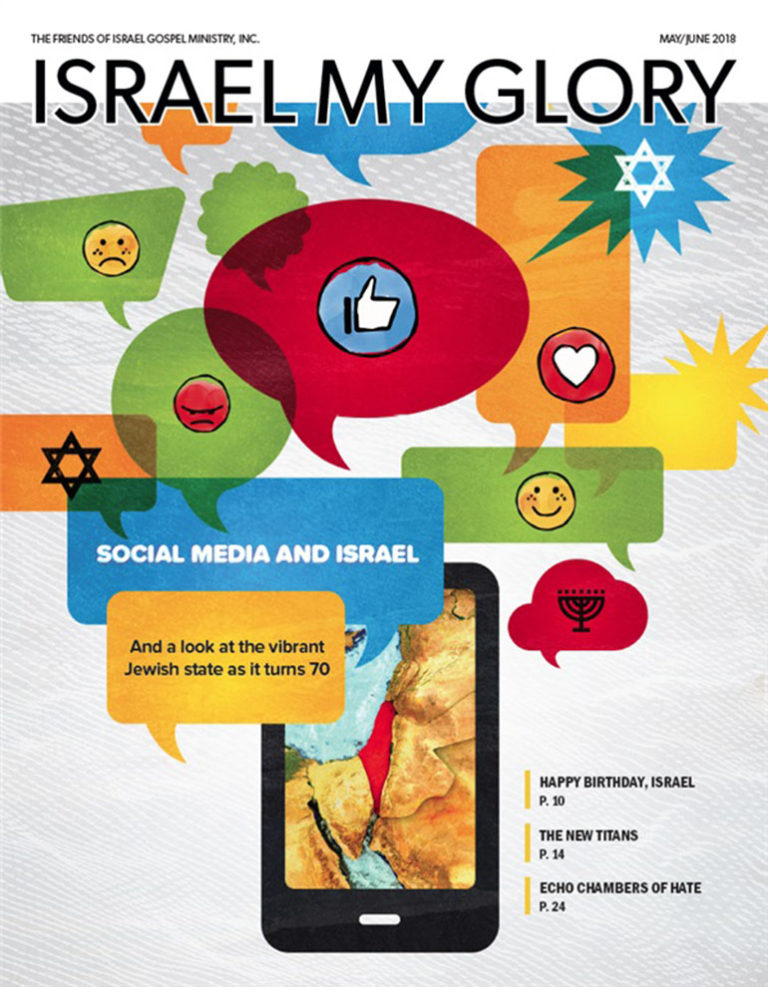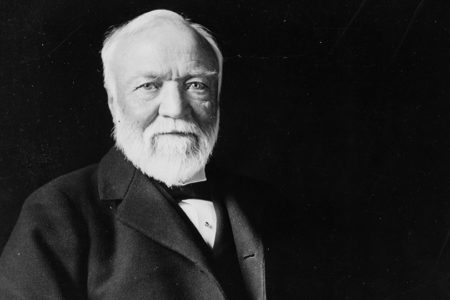Errant or Inerrant? That is the Question.
What scholars say about the reliability of our Bibles—good and bad
For centuries conservative biblical scholars have believed in the inerrancy of Scripture. Such theologians as Augustine (354–430), Thomas Aquinas (1225–1274), Martin Luther (1483–1546), John Calvin (1509–1564), B. B. Warfield (1851–1921), and many others too numerous to mention upheld the doctrine of inerrancy.
In the Age of Enlightenment (Age of Reason, as it was known in the 17th and 18th centuries in Europe), philosophical rationalism crept into theology and began producing an antisupernatural way of thinking that undermined seminaries, Bible schools, denominations, and churches.
Major religious institutions started questioning the trustworthiness of God’s Word, particularly inerrancy. Soon human reason replaced divine revelation in determining the validity and interpretation of Scripture. The development of higher and lower criticism, which analyze everything about Scripture to determine its authenticity, eroded widespread belief that the Bible was divinely inspired. These methods were destructive to biblical truth and inerrancy, prompting many people to deny that God has spoken to mankind through biblical revelation.
Today, liberal theologians deny the inspiration of Scripture, and some have even redefined the doctrine of inerrancy.
Inerrancy Revealed
Simply stated, biblical inerrancy means the Scriptures are without error in the original autographs and everything they affirm is true. However, this definition is insufficient because some evangelicals today claim to believe in the inspiration, infallibility, and inerrancy of Scripture while still maintaining that Scripture is not error-free.
A fuller definition might read more like this: God Himself, who is truth and cannot lie (Num. 23:19; Jn. 17:17; Ti. 1:2; Heb. 6:18), has divinely inspired Scripture to reveal Himself to humankind (2 Tim. 3:16). Scripture is the supernaturally revealed Word of God. It was written by men chosen by God and superintended by the Holy Spirit to express, through their personalities and literary styles, the God-breathed Word without error (2 Pet. 1:20–21). The Holy Spirit guaranteed Scripture’s infallibility in all matters it touches: creation, geography, geology, salvation, doctrine, life sciences (ethics, social, physical), world history, literature, and every area of knowledge. It is without error in the original autographs and entirely true in all it affirms. Inerrancy does not apply to ancient Greek and Hebrew manuscripts or copies of Scripture no matter how accurate.
IMG PRINT SUBSCRIPTION
Sign up for your own physical copy of Israel My Glory with an IMG Print Subscription.
Some people say the Bible is inerrant on doctrine and theology but not, for example, on matters of history and science. But such a statement is fallacious. For example, when scientists believed the world was flat, the Bible said it was round (Isa. 40:22). Scientific fact and spiritual truth in Scripture are entwined and inseparable, including Jesus’ virgin birth, incarnation, death on the cross, and resurrection from the dead. A God of truth, who cannot lie, could not and would not authorize error. Doing so would contradict truth.
Thus, if Scripture did not reveal truth about history and the physical world (no matter how major or minor), it could not be trusted at all. God cannot err, and the Scripture that proceeds from Him is the inspired, verbal, infallible Word of God. Therefore, the Bible in its original autographs is inerrant.
Inerrancy Rejected
We expect pseudo Christians to deny inerrancy. But since the first quarter of the 20th century, some evangelical theologians have denied it. Others claim to believe in it but deny the credibility or truth of certain biblical facts, particularly those involving Jesus’ life and ministry. Here are a few of the major objections being circulated today:
- Inerrancy is not mentioned in the Bible. However, the words Trinity and Bible are not mentioned in Scripture either. Yet that fact does not negate their validity. Scripture clearly teaches God’s truth “endures to all generations” (Ps. 100:5). Psalm 119:160 says, “The entirety of Your word is truth”; and Jesus said, “Your word is truth” (Jn. 17:17). We develop terminology to explain what we see in the Bible, just as other disciplines do. And what we see is that all of God’s Word is true and will endure forever.
- Inerrancy is a recent doctrine not held by earlier theologians in the development of bibliology. Not so! Early theologians believed in Scripture’s inerrancy.
- Inerrancy is based on original autographs that do not exist, so it cannot be proven or disproven. This argument is untenable because thousands of manuscripts do exist and agree with each other 99 percent. Concerning the New Testament, Bible scholar Norman Geisler wrote, “The New Testament has not only survived in more manuscripts than any other book from antiquity, but it has survived in a much purer form, . . . a form that is over 99 percent pure.”1 The Dead Sea Scrolls have verified the accuracy of the Old Testament. If the ancient copyists made an error, they burned the manuscript. With the thousands of accurate manuscripts available that have been thoroughly analyzed, no so-called error has been verified to disprove inerrancy.
Inerrancy could be proven false by finding a provable error in the existing copies of the text. However, that has not happened.
Inerrancy Redefined
In the 20th century, some theologians redefined inerrancy—a trend still with us today. Liberal theologians do not believe the Bible to be the inspired Word of God. They consider the Bible a book like any other, written using history and the traditions of the Israelites to whom it is addressed.
They view Scripture through the grid of human reason and reject biblical inerrancy. But as Giesler said, “If we can’t trust the Bible, we’ve lost the very foundation of our faith.”2 Christianity means nothing without inerrancy.
Modern liberals add higher criticism to their already liberal views. They, too, deny inspiration and inerrancy.
Two great influences against inerrancy were Swiss Reformed theologian Karl Barth (1886–1968) and German Lutheran theologian Rudolf Bultmann (1884–1976). Barth developed the theory of Neo-Orthodoxy. He taught that Scripture is not the revelation of God’s Word but, rather, a witness to God’s Word. Thus fallible men wrote the Bible, and it is not without error.
However, the Bible says it is God-breathed: “All Scripture is given by inspiration of God, and is profitable for doctrine, for reproof, for correction, for instruction in righteousness” (2 Tim. 3:16). It also says, “Prophecy never came by the will of man, but holy men of God spoke as they were moved by the Holy Spirit” (2 Pet. 1:21).
Bultmann, a former criticism leader, dedicated himself to discovering the exact words and events in the Gospel texts. Through “demythologizing” (removing ancient myths from the text and interpreting it into language of the day), he gave theological terms new names and categories that totally distorted the true meaning of God’s Word. Bultmann’s theology lies clearly outside the realm of Christianity and makes no sense at all.
All these redefinitions are based on biased presumptions, faulty evaluations, and defective hermeneutical principles. So the conclusion that the Bible is errant is wrong.
Forty years ago, the attack on the historic doctrine of inerrancy was so invasive that conservative theologians and pastors took action. On October 26–28, 1978, 300 leading evangelicals met at the Hyatt Regency O’Hare in Chicago to craft what became known as the Chicago Statement on Biblical Inerrancy. This statement is one of the most complete definitions on the affirmation of scriptural inerrancy.
When all the evidence is thoroughly analyzed, it leads to the inescapable conclusion that all Scripture is inspired (God-breathed), plenary (wholly inspired), and verbally given as God’s written Word to mankind—infallible, inerrant, and authoritative in the original autographs. Someone said it well: “The Bible—nothing more, nothing less, and nothing else!”
ENDNOTES
- Norman L. Geisler and William E. Nix, From God to Us (Chicago, IL: Moody Bible Institute, 1974), 181.
- Richard Greene, “Take a Stand on Biblical Inerrancy: A Conversation With Norman Geisler,” Decision (May 2014), 14.









You quoted:
” They view Scripture through the grid of human reason and reject biblical inerrancy. But as Giesler said, “If we can’t trust the Bible, we’ve lost the very foundation of our faith.”2 ”
The foundation of the Christian faith is not a book. One might argue that about Muslims, or Orthodox Jews, but not Christians. Either Jesus is alive and real, or he’s just a character in a book, who’s existence relies upon the inerrancy and infallibility of the book where he is depicted. The book is profitable for instruction in righteousness and giving us an idea of Christ’s teaching and actions 2000 years ago, but it is not the foundation of our faith. The foundation of a faith is the Living God, who’s reality and existence, transcends the pages (the ink and papyrus), of a book.
The existence and effects of God,’s presence and actions, are real and do not depend upon any book. Now I may not have the comfort of being able to go to an infallible, perfect written text which I in faith believe is God’s word, to “prove” and support my beliefs and experiences with Christ through His Holy Spirit, but that’s not needed for me to be a born again believer. I don’t have the ego boosting, emotional comfort of an infallible book I can hit people over the head with to reinforce my Christian faith and doctrines, but I nonetheless know Jesus Christ and that i am saved.
I can’t prove Jesus to anyone, or my faith, but I can in the grace and power of the Holy Spirit, manifest the presence of Jesus and His Father, convincing the lost of the reality of God and His Kingdom. They will have a personal encounter the Living God, with or without a book (paper and ink). Will they deny God and His Son, when the Holy Spirit touches their hearts? When they hear the gospel of Jesus, preached and the Holy Spirit convicts them of their sin, leading them to repentance and faith, will the Bible’s grammatical, geographical, historical imperfections neutralize, eliminate, the reality of the Father, Son and Holy Spirit? NO. YHWH is real, with or without the paper and ink.
Let me give you an analogy. I ask someone to help me find a place that sells fruit trees for my backyard. I get an address:
” 5474 SW 55th St, across from the bowling alley”
I go to that address and I see the bowling alley, but at the exact address given to me, I find a place that sells plastic indoor trees and plants for offices, churches.etc. The address given to me was perfect, inerrant, but it took me to plastic, dead plants. I have no use for fruitless, dead, plastic trees. I want trees that bear fruit, that are alive, not made out of plastic.
So I ask someone else to help me and they give me an address:
878 Country Ave, 8th St, across from Sunflower Garden Supply.
I go to that address and I see the Sunflower Vegan restaurant cafe, no Garden Supplies. I also find that the address is wrong. The plant nursery that sells the fruit trees is not at 878 Country Ave, it’s on 10th Street two blooks away, from the Sunflower Garden Supply, owned by the same people who own the Vegan cafe. The address given to me was wrong, it wasn’t infallible or “inerrant”, but it was nonetheless, profitable, wasn’t it? It got me to where I wanted to go, because I found the fruit trees I was looking for. These trees are alive and they bear fruit. Living trees, not the plastic ones that the perfect, inerrant address led me to.
The Bible does not need to be inerrant and absolutely perfect, to lead you and me to Jesus and to His salvation. YHWH and His angels, know that, hence there are no perfect, infallible books in this imperfect, fallible world. We need to get on our knees and pray, seek YHWH and His presence, Father, Son and Holy Spirit. YHWH is real, His Son Jesus Christ, is alive and exists, and so does the Holy Spirit, completely independent of paper and ink. We need the Holy Spirit, the presence of YHWH, in our lives, through His Son, Jesus Christ and we can know Him, regardless of the fact that the text, the ink and the paper, is not perfect.
Awesomely stated, Mr. Juan de Bilbao!
Nailed it. Jesus is the word of God and he corrected Moses all the time.
James,
There’s also different books included in the canons of the Catholic, Protestant, and Eastern Orthodox traditions – technically the Eastern Orthodox church doesn’t have an “official” Canon and there is variation between what books individual Orthodox churchs do and don’t include in their “Canon” (to be read in church) and then additional books that they give a lesser status of useful for teaching. The Catholic canon includes additional content in a couple of books not included in the others, too.
There’s also some of the known books including Paul’s letter to the church @ Laodicea; in Colossians Paul writes to them that he’s going to have them sent a copy of the letter that he sent to the church at Laodicea… the source was mentioned by a few early church fathers, too but went missing at some point.
Heck even the synoptic gospels have a missing source “Q” that some of Matthew and Luke pulled from; which is the inerrant “original autograph” Q or Matthew and Luke; Q was written first? A number of biblical scholars Herbert Marsh, Friedrich Schleiermacher, Christian Hermann Weisse, and Heinrich Julius Holtzmann theorized there was originally two early primary sources one focusing on the narrative / life story and events of Jesus and another “sayings” source and Mark and Q drew on these. -Which is the original autograph?!?…
Then there’s the issue that most of the books of the bible weren’t actually written down in the original form that became what we have today for between decades to centuries sometimes. -Were the original oral traditions this infallible “original autograph” or was it only infallible the first time each story got edited together and written down?
Not just the NT is impacted by these issues even the books of the Pentateuch seems to have earlier original manuscripts that they were based upon, which explains the different takes on similar events particularly from the perspective of the Northern Tribes vs. their neighbor Judah to the south; it’s why you see versions of the same story highlighting Northern Tribe figures, and people from Judah; the accounts from Judah talk about the evils done by the Northern Tribes and the Northern accounts try to diminish or refute those things. (See Wikipedia on “Jahwist”, “Elohist”, “Deuteronomist”, and the “Priestly” source.)
Many of the NT books originally attributed to Paul have been very clearly shown to not have actually been written by Paul, too; is it just the original verbal thoughts of Paul potentially uttered to a scribe that is the “original autograph” or the version that was written down by the scribe?
Then there’s the EDITs, SO MANY EDITS over the centuries of SO MANY groups.
Then the translations into the modern languages we actually read the bible in and all the various translation errors. Plus those translations are made of multiple COPIES of whatever the “original autograph” was and they themselves can include errors and many translations include * footnotes saying that the word choices or even entire verses / stories themselves don’t exist in all manuscripts.
The take on inerrancy above clearly says that the copies aren’t the inerrant versions anyway and only the originals (that largely don’t exist) were inerrant, so they’ve “covered their bases there”, but the point is that even if this definition of inerrancy with all of it’s crazy mental gynmastics is correct, it doesn’t matter in real life application where what we have in front of us is exposed to so many processes that almost completely ensures mistakes (errancy).
Cool, the “original autographs” were inerrant; what am I supposed to even do with that as we don’t have anything close to whatever that’s supposed to be in front of us right now.
-I’m ignoring all the issues around the process to actually determine whether a book should be included in the canon and a number of these Councils, too – “put all the books on a table on top of each other and if one falls on the floor, it’s God saying that that book wasn’t inerrant.”
Then there’s the myriad of issues where science and history have provided insanely overwhelming evidence starkly against a literal inerrancy.
Inerrancy is in any practical manner is a fool’s errand; one that replaces worship of and TRUST (biblical “faith”) in God, with certainty of “right belief”. It is called Biblioatry for a reason as it is worshiping an inanimate object and putting it in the place of God. Calling the book, which is surely trustworthy and filled with truth, and one of the major revelations of who we are and who God is, the “Word of God” (a name of God; the name of Jesus, who was present in Genesis 1 and hovering over the surface of the primordial earth and instrumental in the creation act) is truly blasphemy of the highest and most obvious order. God’s word is spoken through the profits, through the biblical text and narratives, but the “Word of God” is Christ himself and is in whom we place our trust.
Trust, Faith, and Hope are in opposition to the Sin of Certainty, they mean holding the tension of not having absolute knowledge and unambiguous all-authoritative knowledge of good and evil; trust, faith, and hope are what we hold on to when things are murky. https://en.wikipedia.org/wiki/Bibliolatry
God’s best for Israel was NOT for them to have an unambiguous, authoritative human King over them, it was for them to trust Him and listen and learn by walking with him in the cool of the day; God’s best for His people is NOT for them to have unambiguous, authoritative, black-and-white knowledge of all good and evil (faith isn’t actually required at all then; there’s no place for it); God’s best is for us to trust Him and listen and learn by walking with him in the cool of the day.
Sola Scriptura was never right and was always an idol. Scripture, Christ and the Holy Spirit, the Church / Church history, Reason, Personal Experience (*Shock!* Horror!), and Inner Authority for those who have walked with Christ for a long time are meant to be Co-sources of Authority and truth. It’s supposed to be ambiguous, it’s supposed to be wrestling (What does “Israel” mean again?!?).
Jeremiah 31 “I’m going to give you a new covenant; I’m going to plan the spirit in your heart, no longer will a teacher have to teach you, you will know.” Paul then talks about the indwelling of the Holy Spirit being poured into your heart, referencing this verse in Jeremiah.
Repent from your worship of your leather-bound idol, and follow the Living God into ambiguous wrestling; lose your certainty and find faith in Christ. You don’t have to leave your bible behind, but you do have to hold it looser and with only one hand, so you can grasp the hand of God and walk with Him in the days you have left .
I got puzzled by the article stating “Inerrancy does not apply to ancient Greek and Hebrew manuscripts or copies of Scripture no matter how accurate.” Since the English bible was translated from these manuscripts would they not also have to be error free or inerrant?
Hello, Mr. Levy. I have a question that has always nagged me about this topic. When I read in the New Testament about the infallibility of scripture, I tend to think the Old Testament. At the time of the writings of what we call the New Testament, there were only the scriptures of the Old Testament. The term Bible wasn’t used. Sometime later, a council formed that decided what will and will not of all the writings be included in what they called the New Testament. What about the books that didn’t make it? Are they fallible? Now, I am not denying the truth of what is written in the New Testament and the doctrine of Christ. I just have an issue with calling the New Testament “scripture” when it wasn’t “scripture” at the time the New Testament books were written stating. “All Scripture is God-breathed and is useful for teaching, rebuking, correcting and training in righteousness.” How do you reconcile this?
Thank you for your article,
James
Anyone who says the Bible is not the perfect, inerrant Word of God, does not know anything about God, His Son and does not have the Holy Spirit living inside them. In other words they are not believers in the LORD Christ Jesus. All the truths of scripture are available to those who are in Christ, through the instruction and power of the Holy Spirit. Anyone who want to learn the wisdom and grace of God can do it, if they belong to Christ. I could quote many Puritan pastor/teachers about the truth of scripture and the validation of that by the affect the Word has had on their lives and those in their congregation. Read Spurgeon. The veracity of the Word of God cannot be challenged by mortal man. The penalty for denying and altering the truth of the Word of God is severe. Read Revelation 22:18-19. We are not God and without Christ and the Holy Spirit there is no way of understanding Him or His Word.
Gary